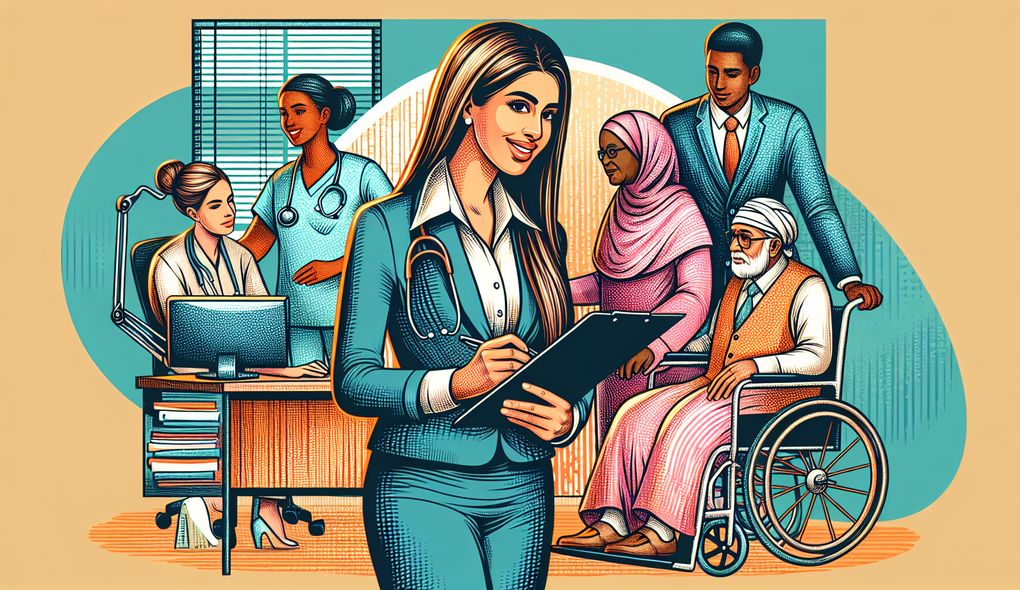Tell us about a time when you had to handle a difficult patient and how you managed the situation.
INTERMEDIATE LEVEL

Sample answer to the question:
I once had a difficult patient who was constantly agitated and uncooperative during their visits. They would often interrupt and argue with the healthcare providers, making it challenging to provide the necessary care. To manage the situation, I remained calm and composed, ensuring that I listened attentively to the patient's concerns. I validated their feelings and empathized with their frustrations. I took the time to explain the treatment plan in detail, addressing their questions and addressing any misconceptions. By establishing a rapport built on trust and respect, I was able to gradually gain their cooperation and compliance throughout subsequent visits.
Here is a more solid answer:
During my time as a Patient Care Coordinator, I encountered a challenging situation with a patient who had a history of non-compliance with prescribed medications. It was essential to approach the situation with compassion and empathy while finding a solution. Firstly, I took the time to understand the patient's concerns and fears about their medication. I scheduled a one-on-one meeting to thoroughly explain the importance of their treatment plan and the potential risks of non-compliance. Together, we discussed alternative medications that may better suit their preferences and lifestyle. Additionally, I collaborated with the healthcare team to explore options for financial assistance to alleviate any financial barriers. By addressing the patient's fears, providing education, and exploring alternatives, we were able to improve medication adherence and enhance their overall health outcomes.
Why is this a more solid answer?
The solid answer provides specific details about the candidate's actions, demonstrating their strong communication skills, compassionate approach, and problem-solving abilities. However, it could benefit from further elaboration on the candidate's experience in navigating complex healthcare systems.
An example of a exceptional answer:
In my previous role as a Patient Care Coordinator, I encountered a difficult patient who was struggling to navigate the complex healthcare system. This particular patient had limited English proficiency and faced cultural barriers, which made it challenging for them to access the necessary care. To address the situation, I went above and beyond my responsibilities by being their advocate and guide. I connected them with interpreters to ensure effective communication during appointments, and I reached out to community organizations that offered support services for language barriers. Additionally, I worked closely with the healthcare team to streamline the patient's care journey, reducing unnecessary delays and improving their overall experience. Through my dedication and resourcefulness, the patient felt heard, understood, and empowered in their healthcare decisions.
Why is this an exceptional answer?
The exceptional answer demonstrates the candidate's ability to go beyond their responsibilities and proactively address the challenges faced by the patient. They showcase strong communication skills, a compassionate approach, and the ability to navigate complex healthcare systems. The candidate's advocacy and resourcefulness highlight their commitment to providing patient-centered care.
How to prepare for this question:
- Reflect on past experiences with difficult patients and think about the strategies you used to manage the situations effectively. Focus on examples that showcase your strong communication skills, empathy, and problem-solving abilities.
- Consider the specific challenges that patients may face in navigating the healthcare system, such as language barriers or cultural differences. Brainstorm strategies on how you can support and advocate for these patients to ensure they receive the care they need.
- Research and familiarize yourself with the healthcare services and resources available in your area. This knowledge will help you provide appropriate guidance and support to patients who may be struggling to access necessary care.
- Practice active listening skills and empathy, as these are crucial in establishing trust and rapport with challenging patients. Role-playing scenarios with a friend or colleague can be an effective way to hone these skills.
What are interviewers evaluating with this question?
- Strong communication and interpersonal skills
- Compassionate and patient-centered approach
- Problem-solving skills and ability to navigate complex healthcare systems

